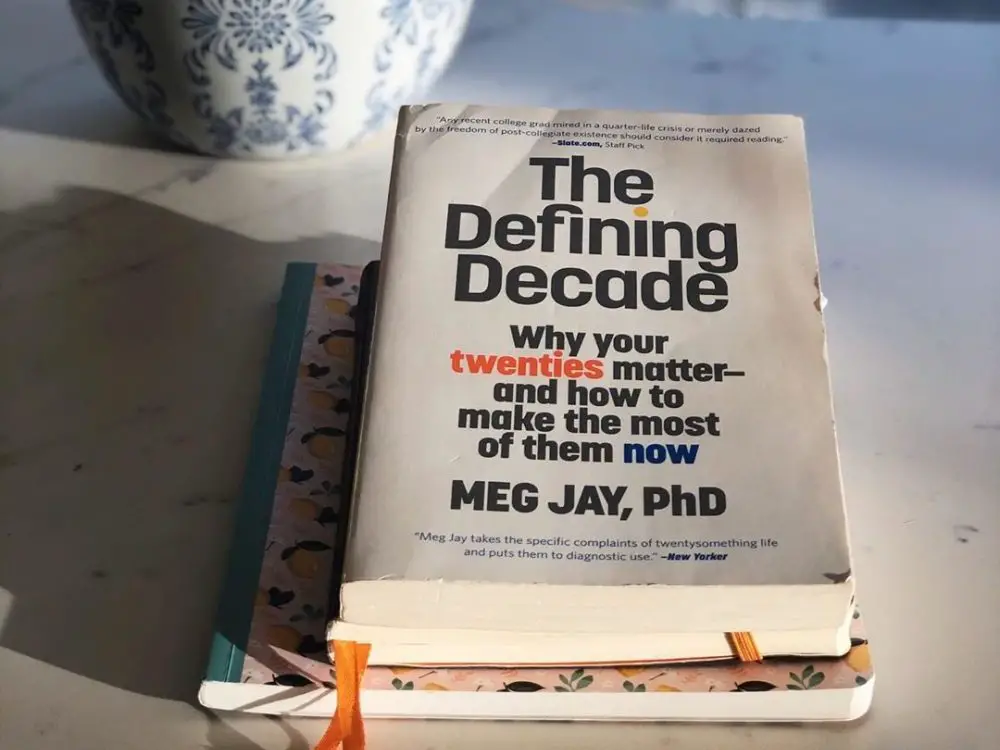Your 20s are now being called “The Defining Decade” and are largely considered some of the most important years of your life. They’re supposed to be fun, carefree and a time for growth and personal development. Young adults often feel it should be their time to dive headfirst into the beginning of “real life.”
Movies show recent college grads landing their dream jobs in their dream cities, or traveling the world and discovering their most honest passions. TV shows depict meet-cutes and love-at-first-site moments, leading us to believe our partners for life are just around the corner. Instagram and Facebook posts in real life even lead young adults to believe all of their acquaintances and peers are living their most authentic truths.
All of these stereotypes and media portrayals set up lofty expectations for what this time period should be in every young person’s life. As most 20s-somethings will tell you, high expectations create space for real experiences to fall short.
What we don’t see is the hundreds of job rejections resulting in a position that might give you some money but doesn’t make you happy, the awkward small talk and forced conversations over drinks with countless Bumble and Hinge dates, or the complete lack of direction that leads young adults to make no decision about their future life at all. When your 20s don’t feel the way you think they should, it creates anxiety, depression and doubt for a lot of people.
Your 20s are hard. Caught somewhere between childhood and adulthood, we may feel like we don’t have enough life experiences to make rational choices — and in many ways, we don’t. We may be hesitant to make choices about our careers, homes, partners or families because we fear it will define us for the rest of our lives. There’s constant anxiety that every decision we make is the wrong one. Even having a plan for a future can feel pointless and draining when it’s not panning out the way you want.
Dr. Meg Jay understands you. These are the exact questions she tackles in her book “The Defining Decade: Why Your Twenties Matter and How To Make The Most of The Now.” A psychologist and therapist, Dr. Jay explores the challenges young adults often face in their 20s using examples and stories of everyday people — her clients.
I consider myself to be highly organized, a planner, Type A, maybe a little neurotic every now and then. I have a clear direction I want my life to take — goals I want to achieve and experiences I want to have. When I first heard my friends talking about Dr. Jay’s book, given the title, I assumed it wasn’t for me. I knew how I was going to make my 20s work for me, I’m one year in and I thought I had the remaining nine all figured out. I wrongly assumed it was for “lazy” or “unmotivated” people.
But while “The Defining Decade” does support adults that feel their 20s might not matter, the book also offers wisdom for 20-somethings of all outlooks on life. In addition, it provides context for many broader issues that become apparent during early adulthood that aren’t expected until you’re there. Dr. Jay tackles questions many young adults encounter in their 20s with regards to careers, love and mindset. While everyone might be facing different struggles, one thing we all seem to have in common is confusion. Dr. Jay gives clarity.
In “The Defining Decade,” Dr. Jay does two important things well. One, she’s honest. She doesn’t sugarcoat the fact that the choices a person makes in their 20s could have lasting effects for the rest of their lives. It may be scary, but it’s true, and being informed now is better than feeling regret later. And two, she’s empathetic. She understands her clients — and by extension her readers — and doesn’t try to pretend like their struggles aren’t worthy of consideration.
While there were a lot of great messages in the book, I found three that specifically resonated with me. Regardless of how far into their 20s a person is, these reminders can help provide context, direction and advice for 20-something life.
1. You don’t have to jump straight into your career, but you have to consider it
I always had the idea that if I didn’t have a job lined up before I graduated college, I was destined for failure. Dramatic, I know. I guess what I’m trying to say is starting my career as soon as I was qualified was extremely important to me.
On the other hand, I’ve had friends who don’t plan on settling into a “real” job until they’ve had time to figure out what they want to do — or better yet just relax. They see their 20s as a time to explore options after college (or high school if you chose not to attend) to take some much-needed reflection and downtime after 12-16 years of school.
Dr. Jay doesn’t necessarily say either approach is the right one. Instead, she encourages young adults to collect “identity capital,” the collection of personal assets. As Dr. Jay defines it, these are the things we do well and long enough that they become part of who we are.
Identity capital doesn’t have to be something you put on a resume, although it could be. Being an avid reader could be identity capital even if you don’t have a degree in English literature, although having one would also qualify.
“Identity Capital” could also be an experience. Maybe volunteering, a job or a story from your life. The bottom line is “identity capital” helps us get clear on who we are, what we like and what we’re good at.
Dr. Jay herself didn’t jump straight into grad school; she worked for four years at Outward Bound, an outdoor leadership program for kids and adults. While it might seem off the beaten path for a future psychologist to spend four years hiking and camping in the woods, it taught her many lessons about what she values.
Before you start your career, it’s important to know what your identity capital is. This will help you make informed decisions regarding what it is you want to do. Some people know this right out of college, others don’t. If you have to take “time off” to figure this out in your 20s it’s more than okay. But it’s important to consider how and what you’re doing; sitting on the couch all day because you don’t want to start your lifelong career right away won’t get you very far.
2. Who you date matters
Maybe a topic we all know in theory, it can be difficult to take who we date seriously in our 20s. It’s fun to meet new people and live a single lifestyle; even with a steady boyfriend or girlfriend there’s still the assumption that we have time before settling down. While being in a lifelong committed partnership isn’t for everyone, many people do think of marriage as a milestone they want to hit in their lives.
Even though there are no required timelines in life, Dr. Jay reminds us that if we spend too much time “having fun” or dating people that aren’t truly a match for our personalities, it can be harder to find a partner later on. Dr. Jay encourages young adults to have standards and expectations, and everyone we date in our 20s should be meeting them. Additionally, if marriage is a goal, it’s okay to take it as seriously as you would a goal for your career.
3. You built your comfort zone for two decades, now is the time to step out of it
By the time we’re 20, our comfort zone is built. We know our friends, the town we live in, and the activities we like. Dr. Jay encourages young adults to do the things they may find uncomfortable, as it often proves to have the most impactful outcomes. One way to do this is through what Dr. Jay calls “weak ties.” These are the people we know as acquaintances or distant connections.
More importantly, “they know things and people we don’t.” Drawing on weak ties — whether that means asking for an informational interview to a person you only met once or going to a party where you only vaguely know the host — provides an extreme opportunity for growth. It could lead to a job, a new friend, a romantic partner or an experience you need to have. Weak ties are like bridges according to Dr. Jay; they’re distant and far for a reason, and you won’t know where they lead until you cross them. “Weak Ties” tend to be the resource we need to make the most of our “Defining Decade.”
As the title of the book suggests, our 20s truly are the defining decade, but that doesn’t change that they can be confusing, hard and scary too. Through transparency, tough love and decades of experience, Dr. Jay can help you navigate this time period to ensure you flourish.
















